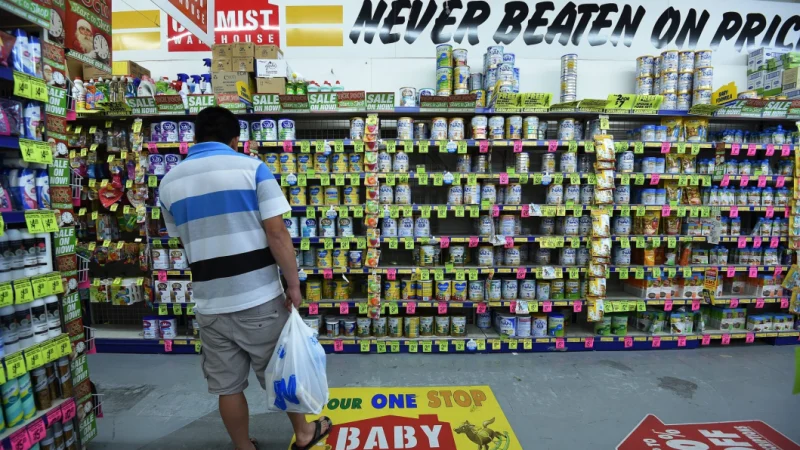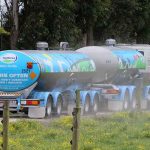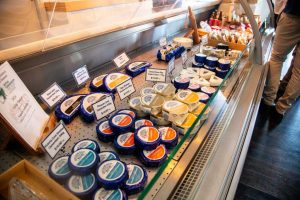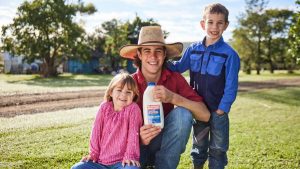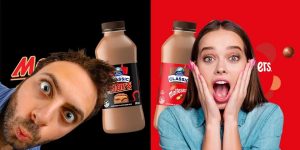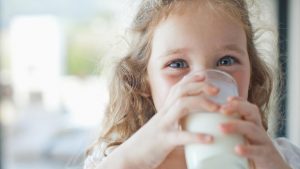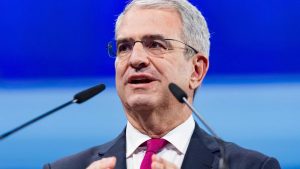
The fast growing baby formula and food company earned more revenue in the June quarter ($18.5 million) than it booked in the full 2018 financial year.
Sales of goat milk infant formula rose 341 per cent compared to the prior corresponding period, and represented 42 per cent of the company’s gross sales for the quarter, according to figures released on Monday.
Bubs is best known as a goat milk infant formula company but recently announced it would start selling cow milk infant formula as well. It also produces organic baby food and goat dairy products.
Bubs chief executive and founder Kristy Carr said Bubs exceeded its “very ambitious goal” of more than $50 million in revenue for the year. In fiscal 2018 it reported revenue of $18.4 million.
Bubs has a revenue target for the new financial year, but in an interview with The Age Mrs Carr declined to disclose it.
We have grown up and are now in a place to be a real player, internationally.
Bubs CEO Kristy Carr
“Let’s just say it’s just as aggressive…if not more so (than last year’s),” she said.
“I’ve really watched the company grow up, and we’ve put a lot of foundation pieces in place in those first few years, particularly around supply chain and capabilities, both in operations and in people, and we’re no longer just a story and a hope that it will do well. We’re actually starting to deliver some really material growth numbers.
“We have grown up and are now in a place to be a real player, internationally.”
The strong quarterly result was welcomed by the market, with Bubs shares rising 5.6 per cent to close at $1.42. But at one point it was up almost 14 per cent, to $1.53, just below its all-time high.
It was a good day on the market across the sector, with the a2 Milk company hitting an all-time intra-day high of $17.13. The stock eventually closed up 3.3 per cent at $17.10, the first time it had closed above $17.
Shares in Tasmanian-based infant formula company Bellamy’s also rose, by 0.6 per cent, to close at $10.29.
While Australia’s biggest infant formula companies enjoyed a good day on the market, Citi analyst Sam Teeger highlighted some challenges to infant formula companies eyeing the China market in a recent note to clients. China is the world’s biggest infant formula market.
“Foreign brands such as a2 and Bellamy’s are likely to face challenges from incumbent Chinese competitors in executing lower-tier city-led growth strategies,” he wrote.
“Nestle announced in May 2019 that it would be launching a formula range under an existing brand to specifically target lower-tier city consumers. This decision by Nestle is in line with our view that lower-tier cities (which house the majority of China’s infant population) will become a figurative battleground for IMF (infant milk formula) brands.”
Mr Teeger said China’s support for Chinese infant formula brands was outlined when authorities recently unveiled a goal that domestically produced infant formula have 60 per cent market share. Currently, China produced infant formula has about a 47 per cent market share.
While Chinese regulatory approval of infant formula brands had accelerated during the first half of the year, most approvals went to domestic China brands, he said.
“With approvals and overseas site inspections once again grinding to a halt prior to the release of draft IMF (infant milk formula) registration regulations, barriers to entry are creeping even higher for new entrants; particularly foreign brands,” he said.
Citi has a neutral rating on both Bellamy’s and a2. But in the note Citi dropped its price target on Bellamy’s by nine per cent to $9.55, “largely reflecting earnings downgrades”.
